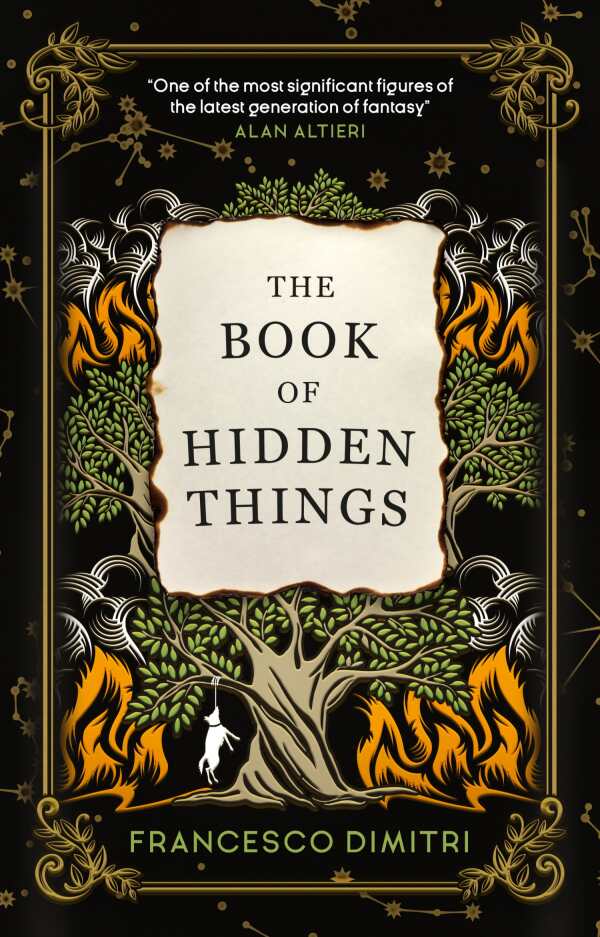The Book of Hidden Things
A mystifying exploration of unbelief and faith, Francesco Dimitri’s The Book of Hidden Things dazzles with portraits of men at a crossroads.
When a band of childhood friends—now in their thirties—gather for their annual meeting in Casalfranco, their Italian hometown, they find their eccentric leader, Art, missing. Tony, Fabio, and Mauro embark on a search that uncovers evidence of a mind gone astray. Each takes a turn narrating a macabre plot that spans memories of their teen years and the troubled present.
Art lures the others into a suspenseful journey that pits their loyalty to him against their better instincts. His promise of a portal to joy forces each friend to make a choice once they discover the cost of Art’s wisdom. Through salient recollections of his exploits, Art emerges as a Pan-like, controversial figure who is either a prophetic genius or a deluded soul, and who, despite his lies, inspires a love that forgives anything.
The daring, cultish premise allows larger themes on adulthood, expectations, illusions, and the nature of friendship to emerge. For Mauro, a family man and lawyer, Art’s disappearance offers a taste of adventure. Tony, a surgeon, and the most grounded of the group, is driven by duty. Fabio, a photographer whose career is nowhere near as successful as it seems, has little to lose. Their disappointments in Casalfranco—and in themselves—braid with a desire to feel meaning. The plot skillfully touches on the deepest vulnerabilities in characters who evolve into sharper versions of themselves.
Amid tangled groves, harsh winds, and cascading revelations, the depth of the men’s ties leaves a singular impression. Even through betrayals, they come out on the other side believing in the value of their original pact. With an ominous twist that leaves the door open for ambiguity, The Book of Hidden Things challenges the limits of rationality. Here, mysteries aren’t riddles to solve, but answers that lie within reach.
Reviewed by
Karen Rigby
Disclosure: This article is not an endorsement, but a review. The publisher of this book provided free copies of the book to have their book reviewed by a professional reviewer. No fee was paid by the publisher for this review. Foreword Reviews only recommends books that we love. Foreword Magazine, Inc. is disclosing this in accordance with the Federal Trade Commission’s 16 CFR, Part 255.

